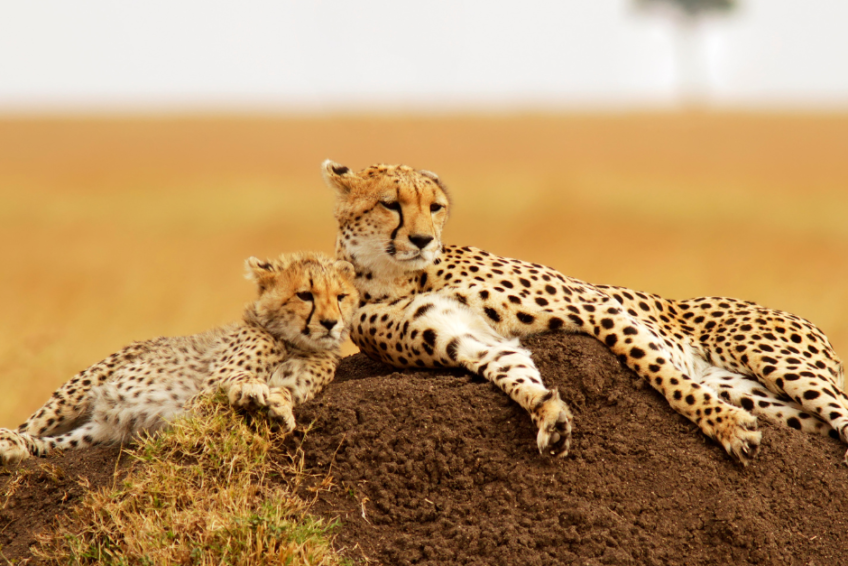Going on an African safari is one of the unique life experiences that you should add to your bucket list. Africa opens its doors to witness from the vast savannahs of Tanzania to the lush rainforests of Uganda while decorating your African days. However, your African tour needs more attention and preparedness before and during your tour to get the most out of it. And let’s face it… it won’t be a cheap endeavor. So you’ll want to get the most out of it! This list reveals my top African safari tips to help you prepare for your most awaited African adventure.
Whether you’re a seasoned traveler or a novice explorer, these African safari tips will ensure an unforgettable and safe experience while appreciating the beauty of African wildlife and culture.
Know the Best Time to Visit
When planning an African safari, it’s essential to consider the best time to visit to make your African safari trip a success. The timing of your safari can significantly impact your experience, as wildlife sightings, weather conditions, and park accessibility vary depending on the season.
Generally, the dry season (June to September) in East Africa is the best time for game viewing, while the wet season (November to May) is ideal for bird watching and observing green forests. In South Africa, the best time to visit is from May to September, as the cooler winter months in the northern regions bring superb conditions for viewing big game. The most popular safari locations in East Africa are the Serengeti National Park (Tanzania) and the Masai Mara National Reserve (Kenya). In South Africa, the most popular safari location is Kruger National Park.
Understanding the best time to visit allows you to witness the most exciting animal behavior and gives you a higher chance of seeing the big five:
- Lion
- Leopard
- Black Rhino
- African bush elephant
- African buffalo
If crowds aren’t your thing, check for shoulder season. You’ll avoid crowds, and the pricing will typically be lower. Regardless of when you travel on your African safari, it’s always recommended to research and plan many months ahead of time. Be sure to research visa and vaccination requirements to avoid disappointment at the airport.
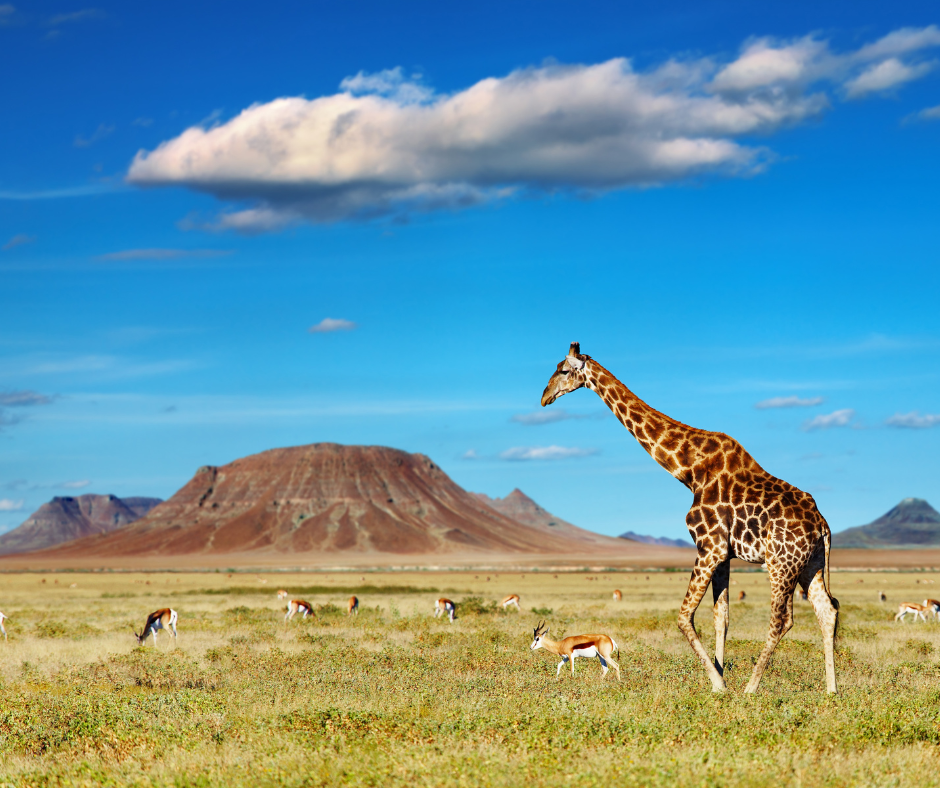
Research and Plan
An African safari needs extensive research and planning to achieve maximum value throughout your journey. With so many wonderful sites and activities, it’s important to research and choose the specific parks, reserves, and areas that suit your interests and preferences. Further, get a better understanding of what you should and shouldn’t bring to avoid unnecessary weight from your backpack, as this tour may require you to move all the time. You can also learn about the available activities, accommodation options, safety tips, cultural norms, and recommended packing lists by researching ahead of time.
A well-planned itinerary will help you make the most of your time, avoid potential hazards, and reduce the stress of the unknown. So, plan and research your African safari ahead of time to ensure a fantastic and unique experience. Also, this allows you to enjoy your time more confidently.
African Safari Options
Masai Mara Vs Serengeti Vs Kruger National Park. Here is a full guide to Masai Mara, Serengeti, and Kruger National Parks. If you’re seeking the ultimate location for a true African safari experience, these three are unrivaled. The Masai Mara National Reserve, Serengeti National Park, and Kruger National Park all provide a variety of experiences and excursions to accommodate all types of visitors, from honeymooners and lone explorers to families and friends.
Start Your Day Early
To spot the wildlife, you must adapt to their lifestyle to catch the rare wildlife moments during your tour. Staring your day early or waking up early is one of the ideal African safari travel tips. Early mornings offer the best opportunities to witness animals at their most active, and as such, game drives usually start before sunrise. Starting your day early also creates opportunities to get some inspiring photographs of the sunrise. Additionally, it’s an ideal time to explore if you need to avoid the heat of the day when many animals tend to rest in the shade.
Moreover, by waking up early, you can also avoid crowds and enjoy a quieter and more peaceful experience. So, set your alarm, grab a coffee, and enjoy the early-morning game drives; it’s a great way to make the most of your African safari adventure.
Focus On your Safety
Amidst the excitement and wonder, it is important to prioritize your safety and well-being during safaris in Africa. There are common things you should know and follow for your safety and the safety of wild animals. You can be as safe as possible by:
- Not trying to get out of your safari car
- Paying attention to your surroundings
- Not yelling or making big noises
- Wearing light colored clothing that’s not too “loud”
- Not disturbing or feeding the animals
- Avoid walking around at night
Also, keep a first-aid kit with you to use during an emergency. Use insect repellent or antimalaria tablets, as malaria still prevails in Africa. Because you are more likely to be exposed to UV rays on an African safari, take sunscreen with you. Depending on the African country you visit, certain vaccinations may be required.
Take Binoculars with You
Taking binoculars on an African safari can be a game-changer, as it can greatly enhance your wildlife viewing experience. The expanse of the African savannah might make seeing animals from a distance challenging, as binoculars allow you to get up close and personal with the wildlife without harming their natural habitat. Further, this is an absolute one of the life-saving African safari tips as this can keep you away from risks as it keeps you away from taking unnecessary adventures for better views. Binoculars can also help you to identify birds, small animals, and other details that the naked eye may easily miss. With the right pair of binoculars, you can fully immerse yourself in the natural world and create unforgettable memories of your African safari.
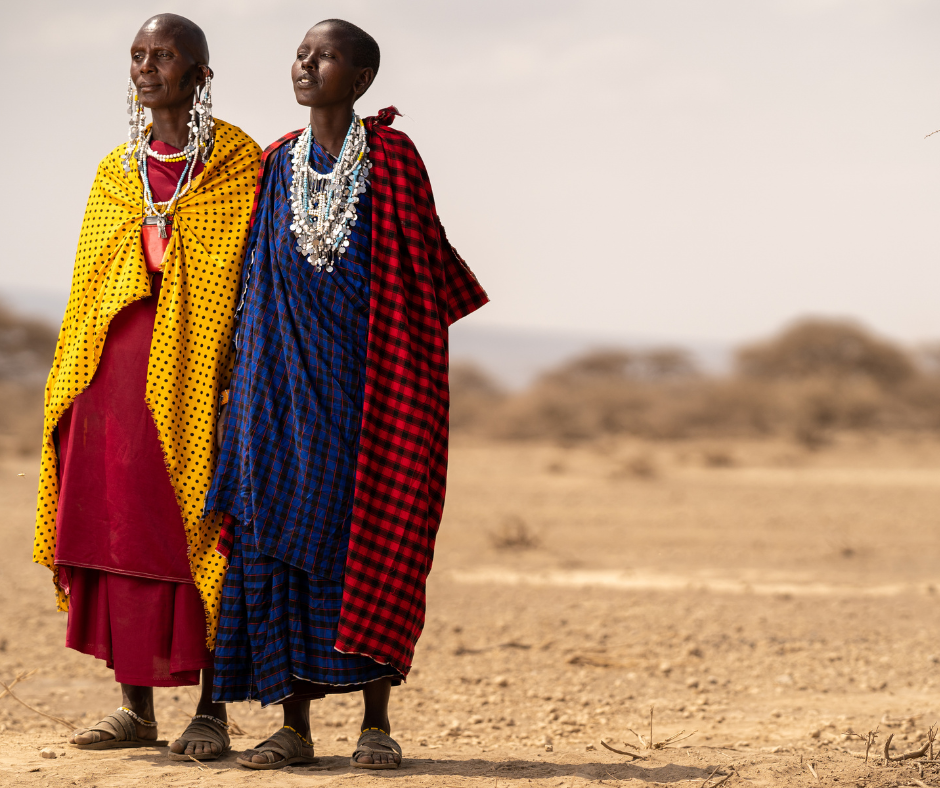
Do Not Expect Internet All the Time
It’s important to understand that you should not expect to have access to the internet at all times. The remote locations and rugged terrain make it difficult to establish reliable internet connections, and many camps and lodges in the wilderness have limited or no connectivity. However, it’s good to realize that you will not be able to surf on your devices as usual during your African safari trip.
Further, if you want to work while traveling, an African safari may not be an ideal experience. However, if you book accommodation with solid connections, that will be manageable to a certain extent. It’s worth remembering not to plan to rely on the internet during your safaris in Africa as one of the key African safari travel tips. There is a large array of stays on an African safari. From small tents to the 5-star Four Seasons Safari Lodge Serengeti in Tanzania.
Respect the Wildlife
Respecting wildlife on an African safari is a must-travel tip to include in any guide to an African safari for maintaining the ecosystem’s delicate balance and ensuring the safety of both animals and people. You are a guest in their home, and the animals should be treated with the utmost respect and care. This includes following the rules and regulations set by your guide, not disturbing the animals, keeping a safe distance, and avoiding behaviors that may provoke or frighten them.
Respecting the wildlife will keep you closer to a more enjoyable and authentic experience, as the animals are more likely to exhibit their natural behaviors and provide incredible sightings. Further, it allows for a deeper connection with nature and a greater appreciation for the incredible creatures that call Africa their home.
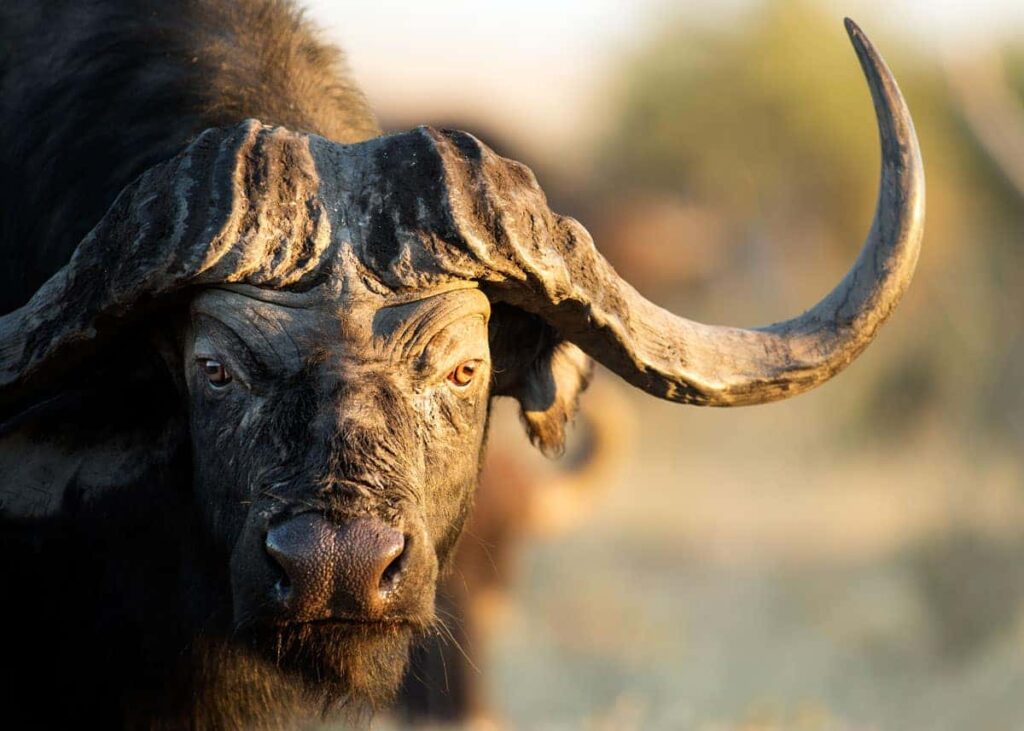
Here’s where you can see the Big 5:
South Africa – Kruger National Park
Tanzania – Serengeti and the Ngorongoro Crater
Kenya – Masai Mara National Reserve
Namibia – Etosha National Park and the Waterberg Plateau Park
Botswana – Moremi Game Reserve & Chobe National Park
Pack Appropriately
Packing appropriately for an African safari is crucial to ensure a comfortable and safe experience. The climate in Africa can be unpredictable, ranging from scorching heat to chilly evenings, so it’s important to pack for all weather conditions. Lightweight, breathable clothing in neutral colors is recommended, along with sturdy, comfortable footwear for walking safaris. Packing power banks or additional batteries is also important, as this is more likely an off-grid experience.
Additionally, a good quality camera with a good lens can enhance your experience and allow you to capture incredible wildlife sightings. By packing appropriately by following one of the key African safari tips, you can ensure that you are comfortable, prepared, and able to fully immerse yourself in the African safari experience.
Stay Hydrated
As you know, you will dip into an adventure with a strange climate to your body. So, staying hydrated during an African safari trip is always recommended to ensure that you remain healthy and comfortable in the often hot and arid climate. Dehydration can cause fatigue, headaches, and other health issues that can put a damper on your safari experience. It’s important to drink plenty of water throughout the day, even if you don’t feel thirsty.
Further, avoiding alcohol and caffeine can help prevent dehydration. Many camps and lodges provide filtered water and reusable water bottles, so take advantage of these amenities. Keeping a water bottle with you always and taking regular breaks in the shade can also help you stay hydrated and enjoy the incredible wildlife sightings of your African safari.
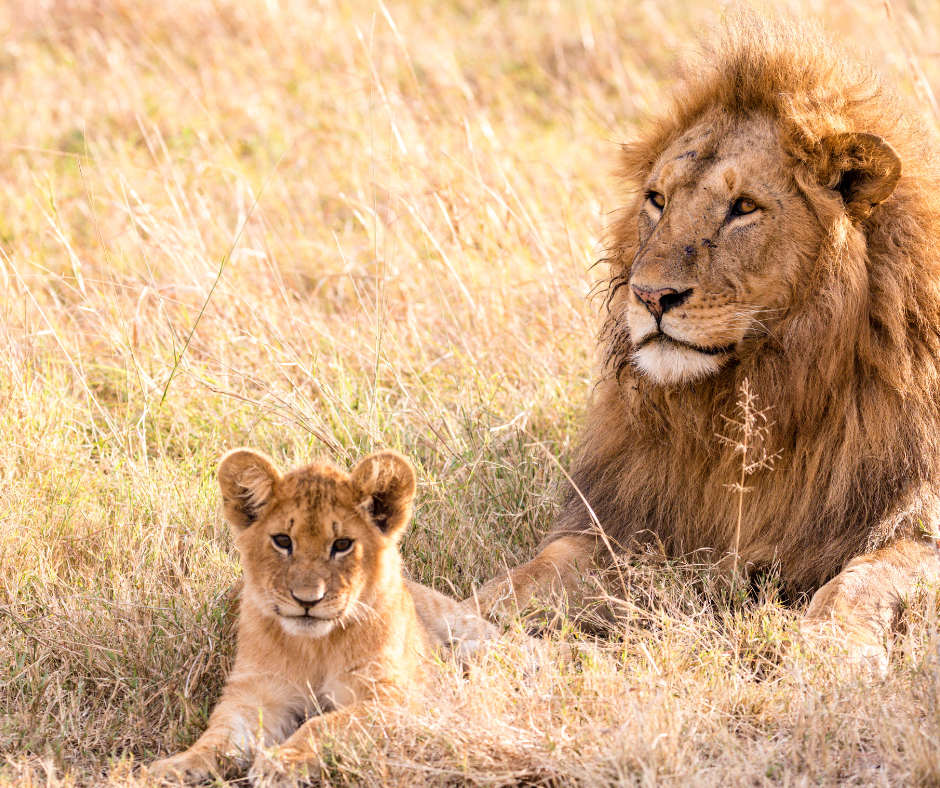
Take Your Time and Enjoy
Taking your time and enjoying the experience during an African safari is one of the most valuable tips to keep in mind. The African wilderness is a place of incredible beauty, wonder, and diversity, and rushing through it can cause you to miss out on the little details that make it truly special. There’s no rush or nothing stops you from enjoying your most awaited African safari experience. Those memories are to be recalled over a lifetime, so you should give the necessary focus and fully enjoy the moment.
If you are looking for a guide to an African safari, taking your time and savoring each moment is the golden sentence to remember, it lets you immerse yourself in the natural world’s sights, sounds, and smells. It also allows for a more relaxed and authentic experience, with the opportunity to observe the animals at a leisurely pace and appreciate the incredible landscapes of Africa.
Safari Lodge Spotlight
There are many lodging accommodations when on a safari. From cheap camps to mid-level lodges, to luxury resorts. Consider your budget and accommodations requiring when choosing your lodging. Here are some of my favorite accommodations near the safari. These lodges include meals and offer game drives as well with knowledgeable drivers and guides. I highly recommend!
Leave No Trace
As visitors, everyone is responsible for minimizing our environmental impact and leaving it as we found it, or even better. This means disposing of waste properly, avoiding littering or damaging vegetation, and being mindful of our actions. By leaving no trace, we can help maintain the ecosystem’s natural balance and protect the habitats of the wildlife we came to see.
It also allows for a more immersive and authentic experience, as we can fully engage with the natural surroundings without causing harm to them. By leaving no trace, we can help ensure that future generations can continue enjoying Africa’s incredible beauty.
I hope you enjoyed my African safari tips! If you’re planning an upcoming safari and would like my assistance planning, please email me at cassandra@accent-on-travel.net.
